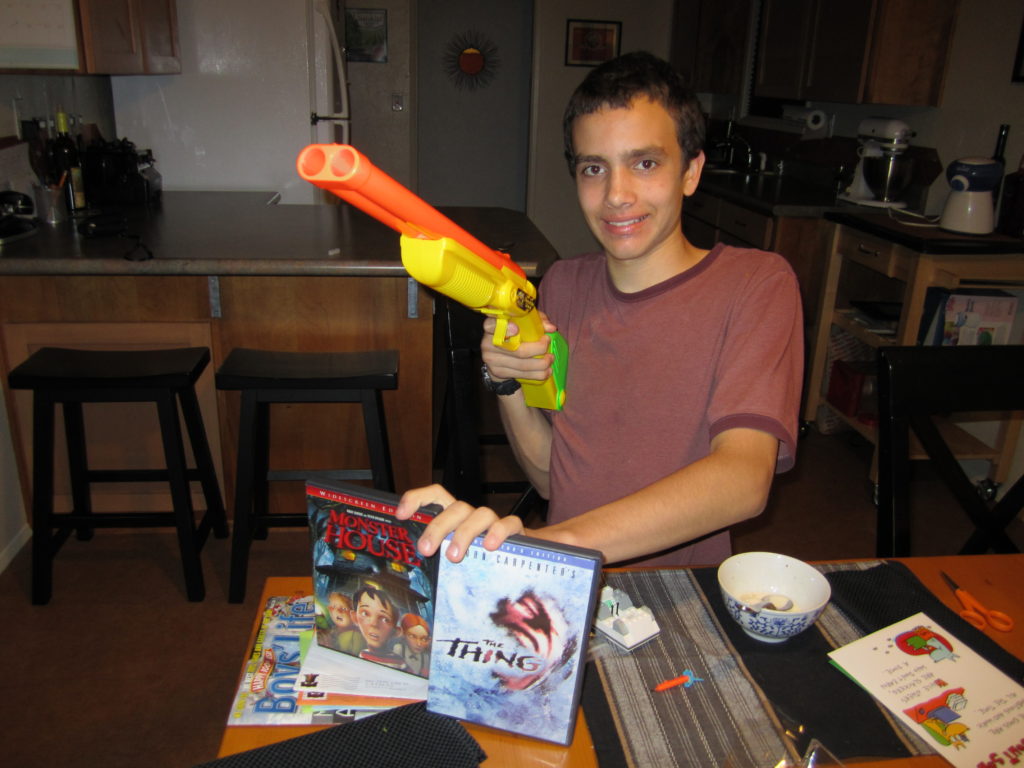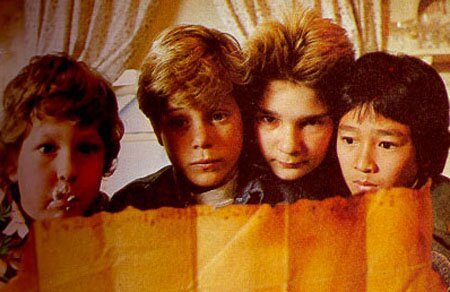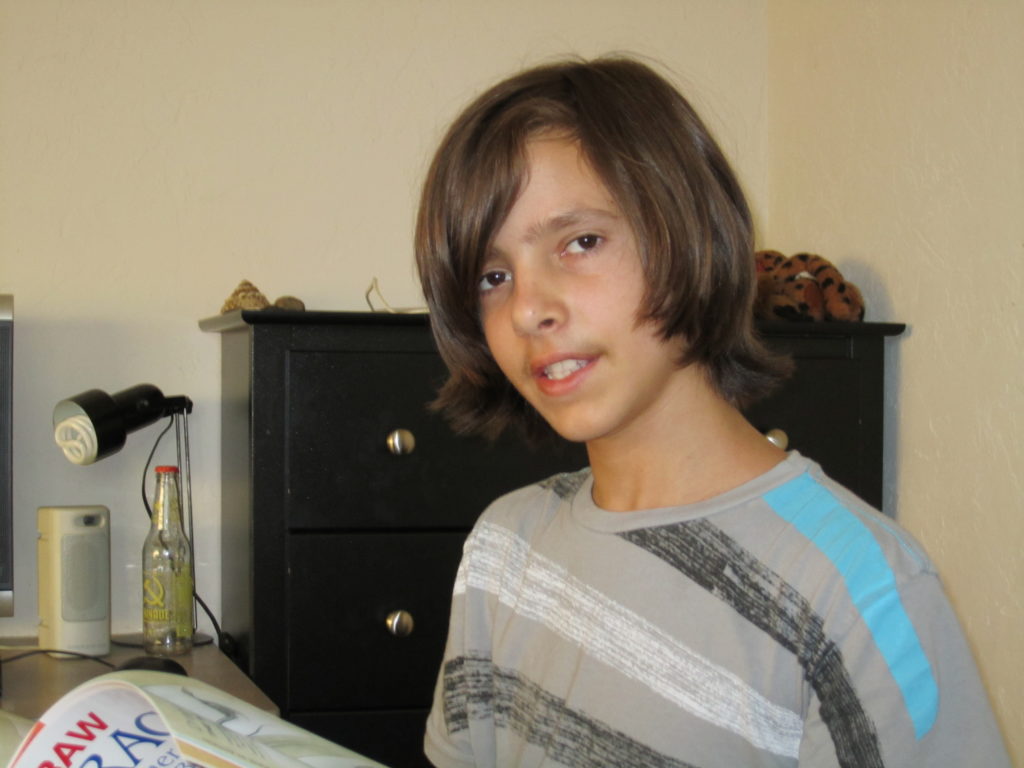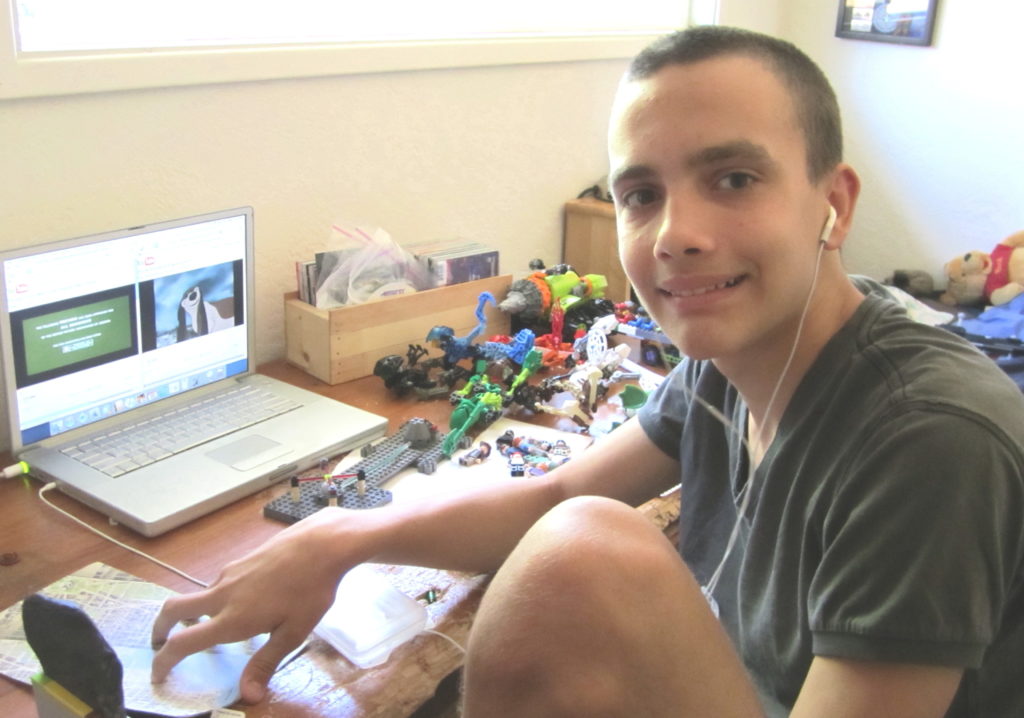
I know of several teenagers and several adults, both on and not-on the autism spectrum, who don’t drive or don’t want to. It could be because they realize that they’re too easily distracted, or that they know it’s a huge responsibility and don’t feel ready or comfortable, or even that they simply aren’t interested. I’m sure there are many reasons why people who don’t drive do not. Unfortunately, my son, who was diagnosed with autism at age three and didn’t start talking until age five, does not feel that any of those reasons apply to him. He wants to drive. And he turns sixteen next week.
Neil has always wanted to be like everybody else. I know this because even before he could talk, he would try to interact with other children by going up to them and laughing in their faces or bumping into them in the hopes that they would play with him. Without words, he tried to engage them. When he started learning to talk, he would go up to kids at a playground, repeat lines from his favorite movies, mixing up words he didn’t know, and the other kids would ask, “What language is he speaking?” Years later, when he was being bullied at the bus stop, I told him that I would drive him to school instead. His response: “But I just want to take the bus so I can be like everybody else.” He is nothing if not determined.
I know that there are people on the autism spectrum who can and do drive. But Neil is just not there yet, and it may be a while. It has nothing to do with his ability to operate a vehicle. If anything, that will be his strength. The problem is his high distractibility. And his five-year emotional delay. Those are the main things standing in the way of him getting his driver’s license. I wouldn’t feel confident with an eleven-year-old driving, even if he is 5’10”.
I’ve written about this subject before and received all sorts of well-meaning comments ranging from letting him practice so that he gets familiar with the feel of the car (definitely not the issue), to letting him race go-karts (he has for years), to the patronizing all-parents-are-nervous-about-their-kids-driving (not the same thing). Of course all parents are nervous about their kids driving. When my younger son, fourteen and not autistic, starts driving, I will be worried. But nowhere near as worried as I am about Neil driving, that’s for certain. It’s a far different level of nervousness. They’re both my sons, and on that level I worry equally, but one son has major challenges with judgment and awareness. And on that level I’m far more nervous.
When Neil started talking about wanting to drive around five years ago, I almost had a panic attack. He knew then that he would have to wait, but I knew that he would have to wait longer than he anticipated. Last year when he turned fifteen, I talked with him about that, but he still wanted to know when. He wanted to know just how long he would have to wait. I told him that we’d revisit the idea in a year, and he has repeatedly reminded me in the past month that the time has come. Ugh.
How will he handle the disappointment if it’s determined that he can’t drive? He’s not content to just maneuver the car around an empty parking lot or down a dirt road. Driving go-karts, though still fun, is not nearly enough. He wants his learner’s permit, and he wants it badly.
And there’s my answer, if I’m aware enough to realize it. He’ll pass the written test (I’m sure with flying colors, due to his near-photographic memory), and he’ll get his permit. And maybe, for now, that’s all he wants. He wants to have his learner’s permit like “everybody else.” He just wants to have it. And I’m hoping that having it will satisfy him for a while. I know that eventually he’ll want to get out on the street, but we don’t have to hit the road anytime soon. And when he starts asking to do that, I’ll sign him up with a professional driving instructor. I’ll still worry, of course. But at least I don’t have to yet.
Anyway, I’m hoping.
**UPDATE** Two month after this post was written, Nigel had two more seizures and, after a 24-hour EEG and MRI, was diagnosed with epilepsy. He never obtained his permit and, now in his twenties, still does not drive.
Image credit: magda s

As for how I feel about my autism, I feel just fine about it. Earlier in the month, I saw the Temple Grandin film and it showed me someone else’s life that was sort of similar to mine. For when I grow up, I’m just wanting to be a filmmaker. Here’s one of my first short films, “Allosaurus Attack”:










